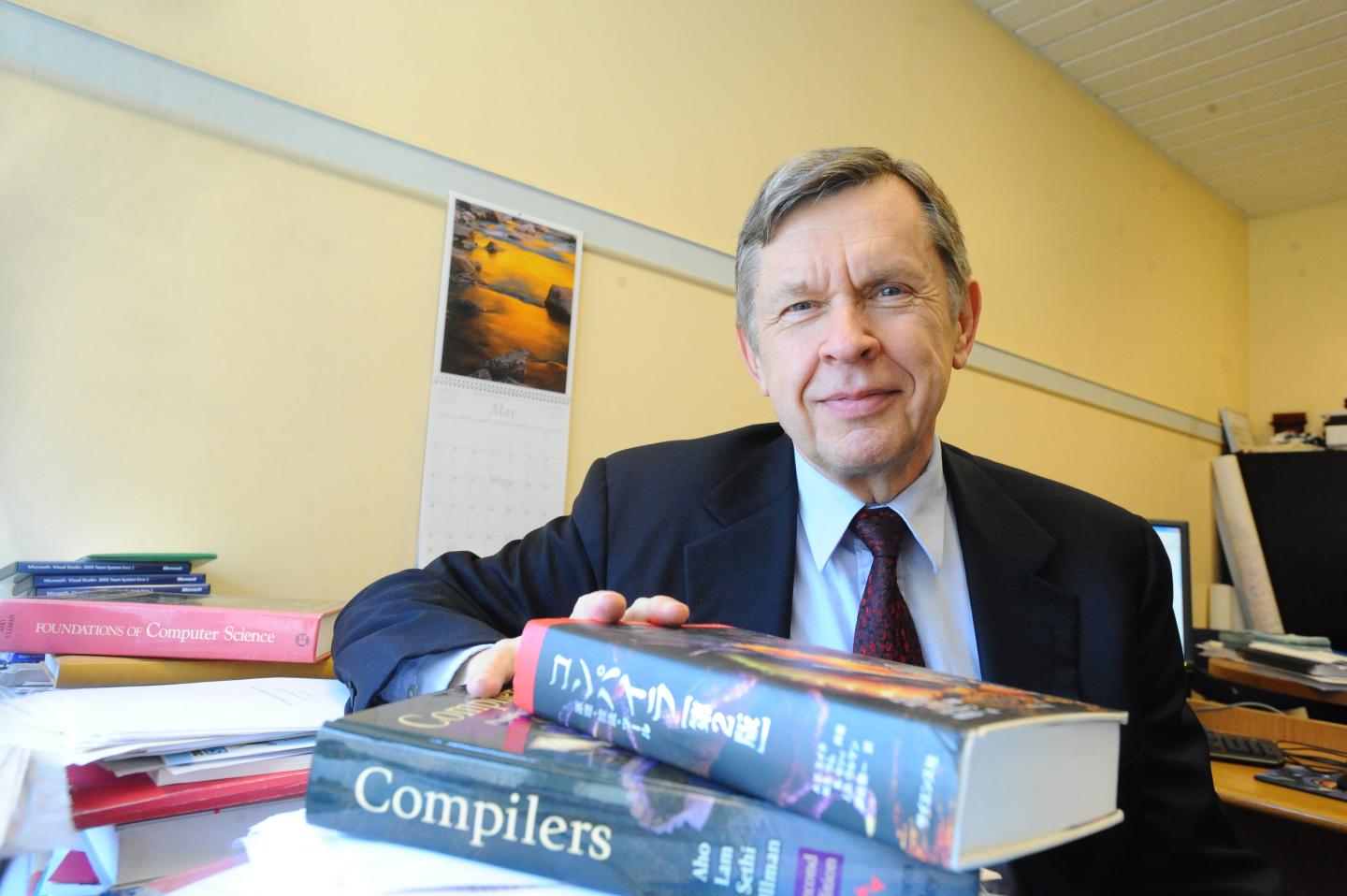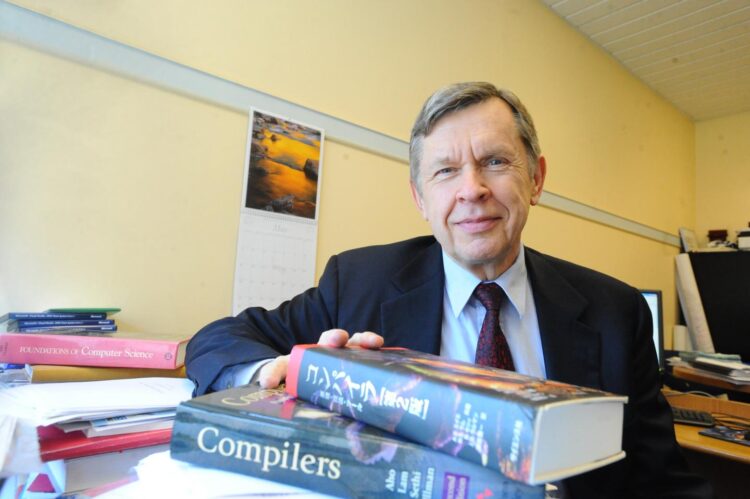Computer Science Professor Emeritus Aho honored for his research and books on the theory and algorithms underlying programming language translators.

Credit: Eileen Barroso/Columbia Engineering
New York, NY–March 31, 2021–Alfred V. Aho, Lawrence Gussman Professor Emeritus of Computer Science, has won the 2020 Association for Computing Machinery (ACM) A.M. Turing Award, known informally as the “Nobel Prize of computing.” Professor Aho is being recognized for fundamental algorithms and theory underlying programming language implementation and for synthesizing these results and those of others in highly influential books that educated generations of computer scientists.
Aho shares the award with his long-time collaborator Jeffrey David Ullman, the Stanford W. Ascherman Professor Emeritus of Computer Science at Stanford University, who received his BS from Columbia Engineering in 1963.
“I am honored and humbled to receive this prestigious award,” said Aho.” I am delighted that with this award ACM recognizes the foundational importance of abstractions and algorithms in the design and implementation of programming languages.”
The Turing Award carries a $1 million prize, with financial support provided by Google, Inc. It is named for Alan M. Turing, the British mathematician who articulated the mathematical foundation and limits of computing.
“On behalf of Columbia Engineering, I congratulate Professor Aho on this landmark achievement,” said Mary C. Boyce, Dean of Columbia Engineering. “The Turing Award is the most prestigious award in computer science and rightly recognizes his groundbreaking signature contributions in programming languages over the course of a remarkable career in both industry and academia.”
Aho and Ullman began working together at Bell Labs in 1967 and their early efforts included developing efficient algorithms for analyzing and translating programming languages. Even when Ullman began a career in academia in 1969 while Aho remained at Bell Labs, they continued their collaboration for several decades and shaped the foundations of programming language theory and implementation, as well as algorithm design and analysis.
They made broad and fundamental contributions to the field of programming language compilers through their technical contributions and influential textbooks, The Design and Analysis of Computer Algorithms (1974) and Principles of Compiler Design (1977). Their early joint work in algorithm design and analysis techniques contributed crucial approaches to the theoretical core of computer science that emerged during this period.
Aho spent more than 30 years at Bell Labs, ultimately becoming the Vice President of the Computing Sciences Research Center, the laboratory that invented UNIX, C, and C++.
He joined the department of computer science at Columbia in 1995. He received the Great Teacher Award for 2003 from the Society of Columbia Graduates. In 2014 he was again recognized for his teaching excellence by winning the Distinguished Faculty Teaching Award from the Columbia Engineering Alumni Association.
Aho received his BS in Engineering Physics from the University of Toronto in 1963 and earned his Master’s and PhD degrees in Electrical Engineering/Computer Science from Princeton University in 1967.
His many honors include the IEEE John von Neumann Medal and the NEC C&C Foundation C&C Prize. He is a member of the US National Academy of Engineering, the American Academy of Arts and Sciences, and the Royal Society of Canada. He is also a fellow of ACM, IEEE, Bell Labs, and the American Association for the Advancement of Science.
###
Media Contact
Holly Evarts
[email protected]
Original Source
https:/





